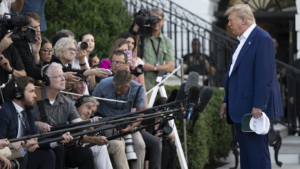Political contributions are a powerful force in shaping public policy worldwide. As corporations, advocacy groups, and wealthy individuals channel funds into political campaigns, their motives often go beyond civic participation, seeking to influence the direction and details of legislative decisions. As political landscapes grow more complex, the importance of engaging experts in political compliance consulting has risen significantly. These consultants help organizations navigate the increasingly intricate rules governing political funding and lobbying activities by ensuring regulatory adherence and ethical standards.
This article explores the mechanisms through which political contributions affect global policymaking, highlighting recent examples, assessing implications for democratic processes, and evaluating the regulatory responses underway. Understanding these dynamics is crucial for stakeholders committed to maintaining integrity and transparency within governmental systems.
LOCAL NEWS: 50 Most Powerful People in Arizona Business for 2025
INDUSTRY INSIGHTS: Want more news like this? Get our free newsletter here
Mechanisms of Influence
Political contributions manifest in two primary forms: campaign donations and lobbying efforts. Both are tools by which corporations, unions, industry associations, and high-net-worth individuals channel resources to sway legislation. Campaign donations are directed toward candidates, parties, or committees with an explicit or implicit expectation that the recipients will be responsive to the donors’ interests. Meanwhile, lobbying expenditures fund ongoing efforts to shape policy discussions and government priorities. In the banking sector, for example, contributions have historically enabled firms to push for regulatory frameworks aligned with industry interests, impacting everything from capital requirements to consumer protections.
Global Perspectives
While much attention is focused on the United States, the influence of political funding extends across continents. In the European Union, powerful lobbying groups—particularly in the agriculture and energy sectors—wield significant sway over legislative agendas. For example, agricultural lobbyists have successfully secured exemptions from stringent environmental safeguards, arguing for the economic impact of such regulations on Europe’s farming communities.
Other democracies—from Canada to India and Australia—face analogous challenges. With rising campaign costs and expanding industry footprints, balancing public accountability and private influence has become an enduring global dilemma.

Implications for Democracy
The growing influence of political contributions raises urgent questions about the health and future of democratic institutions. Critics contend that the infusion of large-scale money into politics leads to policy skewed in favor of affluent contributors—further disenfranchising average citizens and eroding public trust. Empirical research backs these concerns, linking campaign contributions directly to legislative votes on key issues such as financial regulations and international trade.
Regulatory Responses
Governments worldwide have recognized the risks of unchecked political contributions and are enacting reforms to address them. Common strategies include limiting the size of campaign donations, enhancing disclosure requirements for donors and recipients, and increasing oversight over lobbying activities. These measures are designed to level the electoral playing field, enhance transparency, and preserve the integrity of democratic systems.
Conclusion
Political contributions will remain a central aspect of global policymaking for the foreseeable future. While such contributions enable participation in the democratic process and support policy advocacy, they also bring significant risks to the transparency and fairness that define robust democratic societies. Striking a balance between facilitating constructive involvement and preventing undue influence remains one of the most pressing challenges for policymakers, regulators, and civil society alike.




